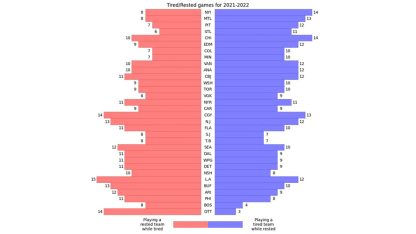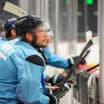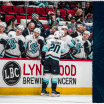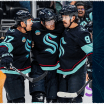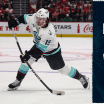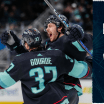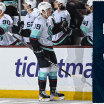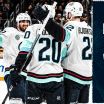Seattle now had one less "tired" game and two more "rested" games.
If we look at back-to-backs specifically in this construct, the Kraken have 13 in their final schedule. They've played 11 thus far, and in those mini two-game series, have a record of 3-8-0. Of those twelve games, only once did they face a team also on the second game of a back-to-back, (Florida, Nov. 27) and Seattle won that game 4-1.
If we flip the script and ask how many times Seattle has hosted a team on the second half of a back-to-back and what were the results, so far this season, that's happened eight times and the Kraken have won three of those games (Washington Nov. 21; Florida, Nov. 27; Dallas, April 3). After the game in Minnesota, the Kraken have one more opportunity to capitalize on the added factor of opponent fatigue on April 29 when San Jose comes to town.
If you're curious about tonight's opponent, Minnesota's schedule has 13 back-to-backs total. The meeting against Seattle wraps up the Wild's 12th, and the team's record in game two of back-to-backs going into the game against the Kraken is 6-3-2.
We have to be careful to draw too much meaning from back-to-back records in and of themselves. If we look at some rough estimates of team performance with zero rest at MoreHockeyStats.com, it's not unnoticed that win percentage rankings more closely align with overall season rankings rather than fatigue itself. Dave Hakstol has even talked about not making the back-to-back scheduling too intentional of a focus.
Fatigue can be one element of trying to gain an edge on an opponent, but ultimately so many other things factor in, too. But, in terms of what impact fatigue may have, there's a few chances left for the Kraken to leverage it in their favor, (and also overcome it) as the season comes to a close.

